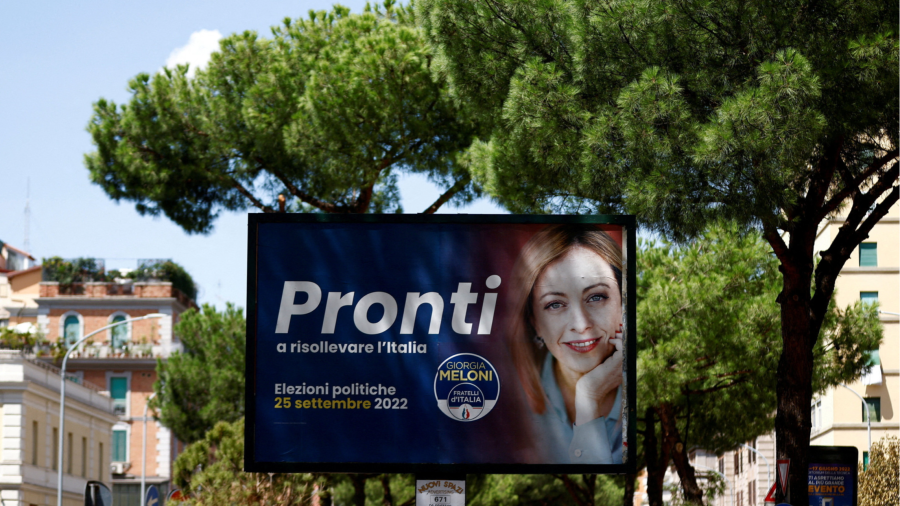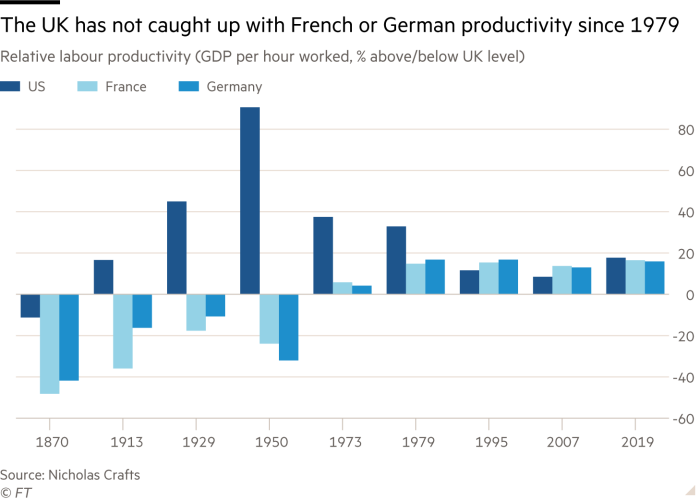
This article is an on-site version of our Europe Express newsletter. Sign up here to get the newsletter sent straight to your inbox every weekday and Saturday morning
Good morning and welcome to Europe Express.
The Italian election is fast approaching and while there may be little mystery left as to who will succeed Mario Draghi at the helm of the government, we will run you through potential names for the ministry of finance — a job with an oversized significance in the highly-indebted country and the EU’s third-largest economy.
Russia’s Vladimir Putin yesterday said he was not bluffing when threatening to use nuclear weapons and mobilised reserves to support the war in Ukraine.
Ursula von der Leyen, European Commission president, warned that the EU was ready to impose more sanctions on Russia, telling CNN that further “economic costs” would be imposed on individuals and entities alongside extra export controls as Moscow shifts to a full war economy.
Over in Stockholm, where a government close to Italy’s Giorgia Meloni is taking office, former prime minister Stefan Löfven is on track to become the next head of the European Socialists party (PES) — the umbrella organisation grouping Europe’s centre-left. Given that he is the only candidate running, a congress in Berlin next month is set to formalise his appointment.
And in energy news, we’ll look at why EU governments are failing to seize the opportunity presented by the current crisis and speed up plans to insulate buildings and reduce their carbon footprint.
Looking for a markets whisperer
Italy’s Giorgia Meloni of the far-right Brothers of Italy party may have persuaded a significant chunk of her country’s electorate that she has what it takes to run the country, but convincing investors that Italy will be in safe hands under their stewardship will be tougher, writes Amy Kazmin in Rome.
Meloni’s rightwing coalition is expected to enjoy a decisive victory in Sunday’s elections, but after the vote investors’ attention will turn to the question of who will be tapped to serve as finance minister, charged with managing public finances, and reassuring jittery markets about the sustainability of Italy’s mountain of public debt.
Italy’s debt-to-GDP ratio is currently around 150 per cent of gross domestic product, the second-highest in the eurozone, and the highest of any of the major European economies, and concerns are rising about Italy’s ability to service this amid Europe’s deteriorating economic conditions. Once installed, the new government will also have little time to put together a new budget by the start of next year.
The decade-old Brothers of Italy has not been part of any government since it was formed, and thus its members — many of whom have spent their career on the political margins — have few plausible internal candidates for the critical job.
Instead, Meloni is thought to be looking for competent technocrats, or other experienced individuals, who may be willing to fill the crucial role.
One name circulating as a possible contender is Fabio Panetta, the 63-year-old who is currently a member of the executive board of the European Central Bank and would be considered a safe pair of hands that could ensure Rome’s relationship with the ECB remains smooth.
Speculation of his candidacy was fuelled when Panetta met Meloni in Rome at a politician’s birthday party, soon after the summer political crisis that brought down prime minister Mario Draghi’s government.
But Panetta, who spent his career at the Bank of Italy, is said to be reluctant: his departure from the executive board could lead to Italy’s loss of representation on the influential body. Having been in Italy’s central bank throughout his career, he also has little experience with the cut-and-thrust of politics.
Another option is that Meloni could ask Draghi’s current finance minister, Daniele Franco, 69, to stay on. Franco, who keeps a low profile but is technically proficient, has spent his career in the central bank, finance ministry and ECB and would give strong reassurance to financial markets.
Other names also mentioned include Domenico Siniscalco, former finance ministry and treasury department official who has spent years at Morgan Stanley Europe, where he is now vice-president and head of Italy’s division.
During her long climb to power, Meloni often lashed out at international financiers and global markets. Choosing a finance minister with solid market experience and understanding of public finances, will be key to reassuring current investors that she will not be at war with them, and will take their interests and perspective into account.
Chart du jour: Reality check

Martin Wolf’s latest column rips apart Liz Truss’s economic plans inspired by Margaret Thatcher’s deregulatory agenda and points to the productivity gap which the UK hasn’t been able to close since the late 70s.
Wasted crisis
They say never let a good crisis go to waste, but despite the opportunity provided by the current energy crisis, governments are rather cool on accelerating plans to renovate buildings, writes Alice Hancock in Brussels.
Buildings account for more than a third of the EU’s energy-related greenhouse gas emissions and making them more efficient is part of the EU’s “Fit for 55” efforts to cut greenhouse gas emissions by 55 per cent by 2030. The envisaged measures would include insulation, solar panels and replacing old heating systems.
The European parliament, as ever the more ambitious institution, has been in its internal negotiations pushing to renovate buildings more quickly to higher standards than those suggested by the commission late last year.
But governments would have none of that. According to the latest proposal from the council’s dedicated working group, the commission’s original targets would be replaced by non-binding, aspirational ones.
Around three-quarters of the EU’s building stock is inefficient, the paper says, but leaves it up to EU capitals to decide how to address the issue.
“In their building renovation plans, member states should set their own national building renovation targets,” the document says, outlining a road map for how this might be done but deleting the commission’s effort to standardise energy efficiency classes for buildings.
There are also allowances for single family homes to not be renovated unless they are being bought, sold, rented, or repurposed as residential, which carves out a lot of the union’s building stock.
Given the current energy crisis, the need to make buildings more efficient could be seen as something of a priority but a report from the Buildings Performance Institute Europe out last week said that buildings were “off track and much behind the path to climate neutrality by 2050”.
Their tracker of 0 to 100 where 100 is net zero emissions by 2050 put the buildings sector at 0.48 in 2019, when it should have been at 14 points if it were to make the net zero by 2050 goal, BPIE said.
Michael Neaves, programme manager at the sustainability standards NGO ECOS, says that given progress on other environmental efforts “as things stand, buildings are an all-season weak spot in our clean energy transition, energy security, and overall climate action”.
What to watch today
-
UN security council meeting on Ukraine
-
European Commission president Ursula von der Leyen speaks at Princeton University
Notable, Quotable
-
Tea for one: Relations between some Turkish opposition parties are so fraught that they refuse to even have tea together, writes Laura Pitel in Ankara. This is only helping President Recep Tayyip Erdoğan ahead of elections next year.
-
Irish gloom: Young people in Ireland are increasingly feeling priced out of their own country due to soaring living costs and are planning to emigrate, a recent survey has found.
FT Live: Italy’s 2022 election
Join FT correspondents and a special guest on September 27 for a subscriber-only virtual briefing on the Italian election results and what’s in store for Italy and Europe. Get your pass at ft.com/italianelection and submit your questions ahead of the discussion.
Recommended newsletters for you
Britain after Brexit — Keep up to date with the latest developments as the UK economy adjusts to life outside the EU. Sign up here
Trade Secrets — A must-read on the changing face of international trade and globalisation. Sign up here
Are you enjoying Europe Express? Sign up here to have it delivered straight to your inbox every workday at 7am CET and on Saturdays at noon CET. Do tell us what you think, we love to hear from you: [email protected]. Keep up with the latest European stories @FT Europe